This article needs additional citations for verification .(January 2021) |
Palermo Anno Uno (Palermo Year One) is an Italian anti-mafia organization, based in Palermo, Sicily. It is an umbrella organization for different NGOs opposing organized crime.
This article needs additional citations for verification .(January 2021) |
Palermo Anno Uno (Palermo Year One) is an Italian anti-mafia organization, based in Palermo, Sicily. It is an umbrella organization for different NGOs opposing organized crime.
Palermo Anno Uno was founded in March 1993, following the massive demonstrations all over Sicily following the murder of Giovanni Falcone in May 1992, as a mean to go from protest to proposals in the war against organized crime. [1]
For its efforts against organized crime, it was awarded the 1996 Rafto Prize. [2]

Corleone is an Italian town and comune of roughly 11,158 inhabitants in the Metropolitan City of Palermo, in Sicily.
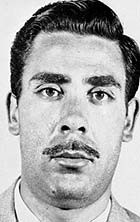
Tommaso Buscetta was an Italian mobster and a member of the Sicilian Mafia. He became one of the first of its members to turn informant (pentito) and explain the inner workings of the organization.
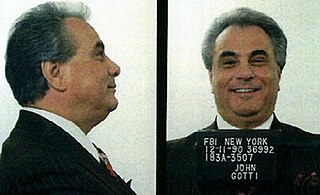
"Mafia" is an informal term that is used to describe criminal organizations that bear a strong similarity to the Sicilian Mafia. The central activity of such an organization would be the arbitration of disputes between criminals as well as the organization and enforcement of illicit agreements between criminals through the use of or threat of violence. Mafias often engage in secondary activities such as gambling, loan sharking, drug-trafficking, prostitution, and fraud.
The Sicilian Mafia, also simply known as the Mafia and frequently referred to as Cosa Nostra by its members, is an Italian Mafia-terrorist-type organized crime syndicate and criminal society originating in the region of Sicily and dating to at least the 19th century. It is a loose association of criminal groups that share a common organisational structure and code of conduct, and present themselves to the public under a common brand. The basic group is known as a "family", "clan", or cosca. Each family claims sovereignty over a territory, usually a town or village or a neighbourhood (borgata) of a larger city, in which it operates its rackets. Its members call themselves "men of honour", although the public often refers to them as mafiosi. By the 20th century, following wide-scale emigration from Sicily, mafiosi established gangs in North and South America which replicate the traditions and methods of their Sicilian ancestors. The Mafia's core activities are protection racketeering, the arbitration of disputes between criminals, and the organizing and oversight of illegal agreements and transactions.
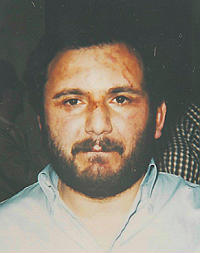
Giovanni Brusca is an Italian mobster and former member of the Corleonesi clan of the Sicilian Mafia. He had a major role in the 1992 murders of Antimafia Commission prosecutor Giovanni Falcone and businessman Ignazio Salvo, and once stated that he had committed between 100 and 200 murders. Brusca had been sentenced to life imprisonment in absentia for Mafia association and multiple murder. He was captured in 1996, turned pentito, and his sentence reduced to 26 years in prison. In 2021, Brusca was released from prison.

The Maxi Trial was a criminal trial against the Sicilian Mafia that took place in Palermo, Sicily. The trial lasted from 10 February 1986 to 30 January 1992, and was held in a bunker-style courthouse specially constructed for this purpose inside the walls of the Ucciardone prison.

Organized crime in Italy and its criminal organizations have been prevalent in Italy, especially Southern Italy, for centuries and have affected the social and economic life of many Italian regions since at least the 19th century.

Leoluca Orlando, is an Italian politician, current Mayor of Palermo. He was also mayor of the city in 1985–1990 and 1993–2000 and President of Italian Federation of American Football (FIDAF). He is best known for his strong opposition to the Sicilian Mafia during his mayoralty in the 1980s, which was publicly referenced in the media as the "Palermo Spring".

Joseph Petrosino was an Italian-born New York City Police Department (NYPD) officer who was a pioneer in the fight against organized crime. Crime fighting techniques that Petrosino pioneered are still practiced by law enforcement agencies.
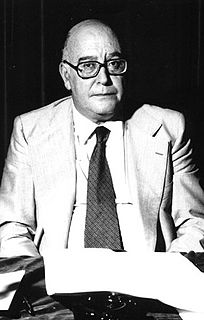
The Sicilian Mafia Commission, known as Commissione or Cupola, is a body of leading Sicilian Mafia members to decide on important questions concerning the actions of, and settling disputes within the Sicilian Mafia or Cosa Nostra. It is composed of representatives of a mandamento that are called capo mandamento or rappresentante. The Commission is not a central government of the Mafia, but a representative mechanism for consultation of independent Mafia families who decide by consensus. "Contrary to the wide-spread image presented by the media, these superordinate bodies of coordination cannot be compared with the executive boards of major legal firms. Their power is intentionally limited [and] it would be entirely wrong to see in the Cosa Nostra a centrally managed, internationally active Mafia holding company," according to criminologist Letizia Paoli.
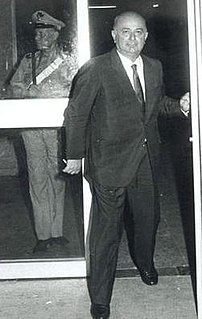
Ignazio Salvo and his cousin Nino Salvo were two wealthy businessmen from the town of Salemi in the province of Trapani. They had strong political connections with the Christian Democrat party, in particular with the former mayor of Palermo, Salvo Lima, and Giulio Andreotti. At the Maxi Trial against the Mafia in the mid-1980s, they were convicted of association with Mafia members.

The Corleonesi Mafia clan was a faction within the Corleone family of the Sicilian Mafia, formed in the 1970s. Notable leaders included Luciano Leggio, Salvatore Riina, Bernardo Provenzano and Leoluca Bagarella.
The Italian parliamentary Antimafia Commission is a bicameral commission of the Italian Parliament, composed of members from the Chamber of Deputies and the Senate. The first commission, formed in 1963, was established as a body of inquiry tasked with investigating the "phenomenon of the [Sicilian] Mafia". Subsequent commissions expanded their scope to investigate all "organized crime of the Mafia type", which included other major criminal organizations in Italy such as the Camorra, the 'Ndrangheta and the Sacra Corona Unita.

Francesco Di Carlo was a member of the Sicilian Mafia who turned state witness in 1996. He was accused of being the killer of Roberto Calvi, nicknamed "God's banker", because he was in charge of Banco Ambrosiano and his close association with the Vatican Bank. He died after contracting COVID-19 during the pandemic on April 16, 2020.
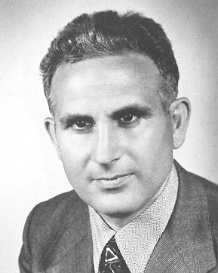
Pio La Torre was a leader of the Italian Communist Party. He was killed by the Mafia after he initiated a law that introduced a new crime in the Italian legal system, mafia conspiracy, and the possibility for the courts to seize and to confiscate the assets of the persons belonging to the mafia conspiracy.

Mauro De Mauro was an Italian investigative journalist. Originally a supporter of Benito Mussolini's Fascist regime, De Mauro eventually became a journalist with the left-leaning newspaper L'Ora in Palermo. He disappeared in September 1970 and his body has never been found. The disappearance and probable death of the "inconvenient journalist" – as he became known as a result of his investigative reporting – remains one of the greatest unsolved mysteries in modern Italian history.

Addiopizzo is a grassroots movement established in Sicily to build a community of businesses and consumers who refuse to pay "pizzo"—Mafia extortion money. It is a grassroots social-conscience motivated consumer movement analogous to Fair Trade. The group, led by a generation whose adolescence was characterized by the murders of anti-Mafia judges, journalists and businessmen, operates in the Palermo and Catania metropolitan areas, traditionally Mafia strongholds.

Salvatore Riina, called Totò 'u Curtu, was an Italian mobster and chief of the Sicilian Mafia, known for a ruthless murder campaign that reached a peak in the early 1990s with the assassinations of Antimafia Commission prosecutors Giovanni Falcone and Paolo Borsellino, resulting in widespread public outcry and a major crackdown by the authorities. He was also known by the nicknames la belva and il capo dei capi.

Rosario Crocetta is an Italian politician. He was the first openly gay mayor in Italy when he became Mayor of Gela in 2003, a post he held until 2009.
Steven Joseph La Torre was an Italian-American crime boss of the Bufalino crime family. He founded what would become the Bufalino crime family, which he ran from 1903 to 1908. La Torre died on July 5, 1984.